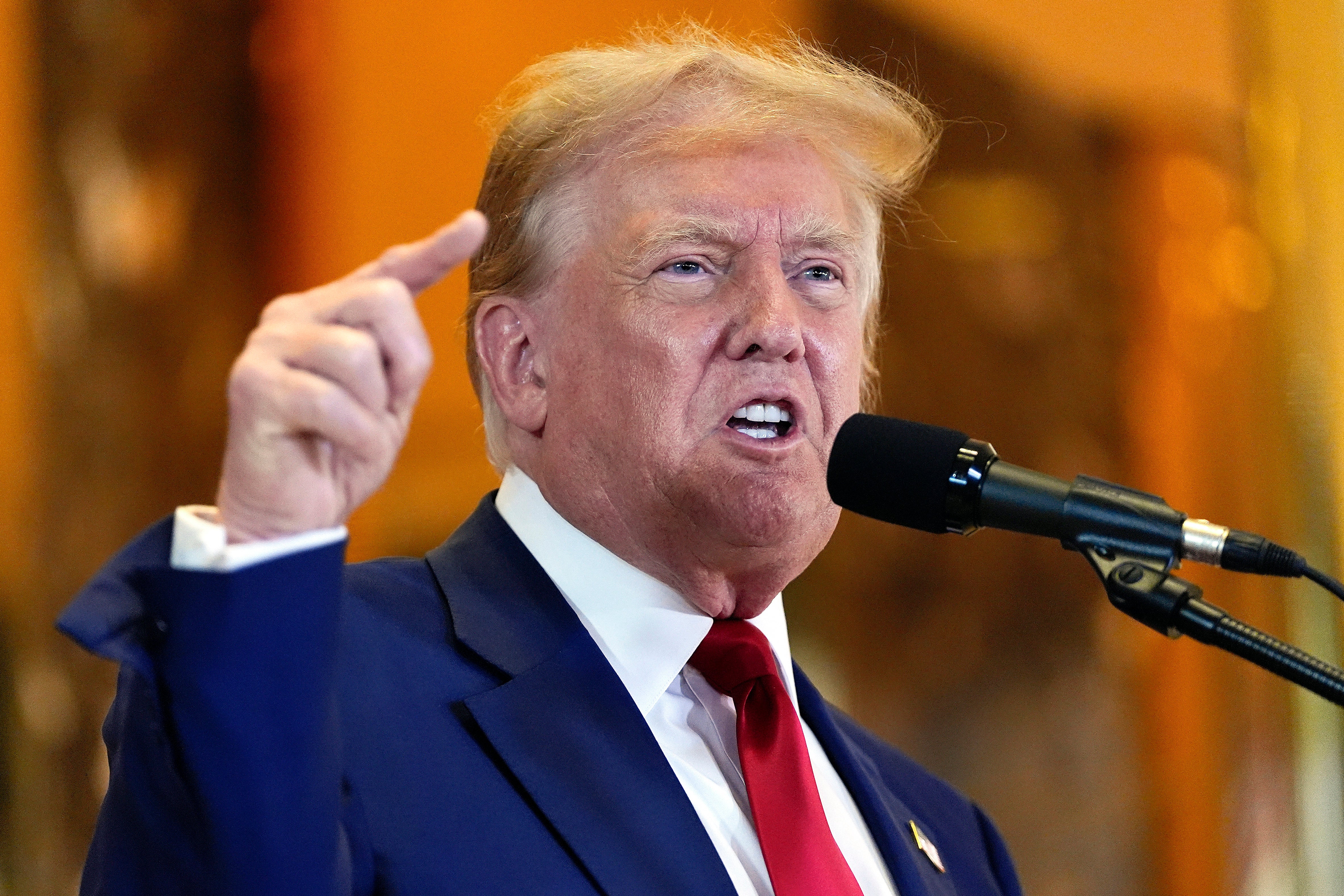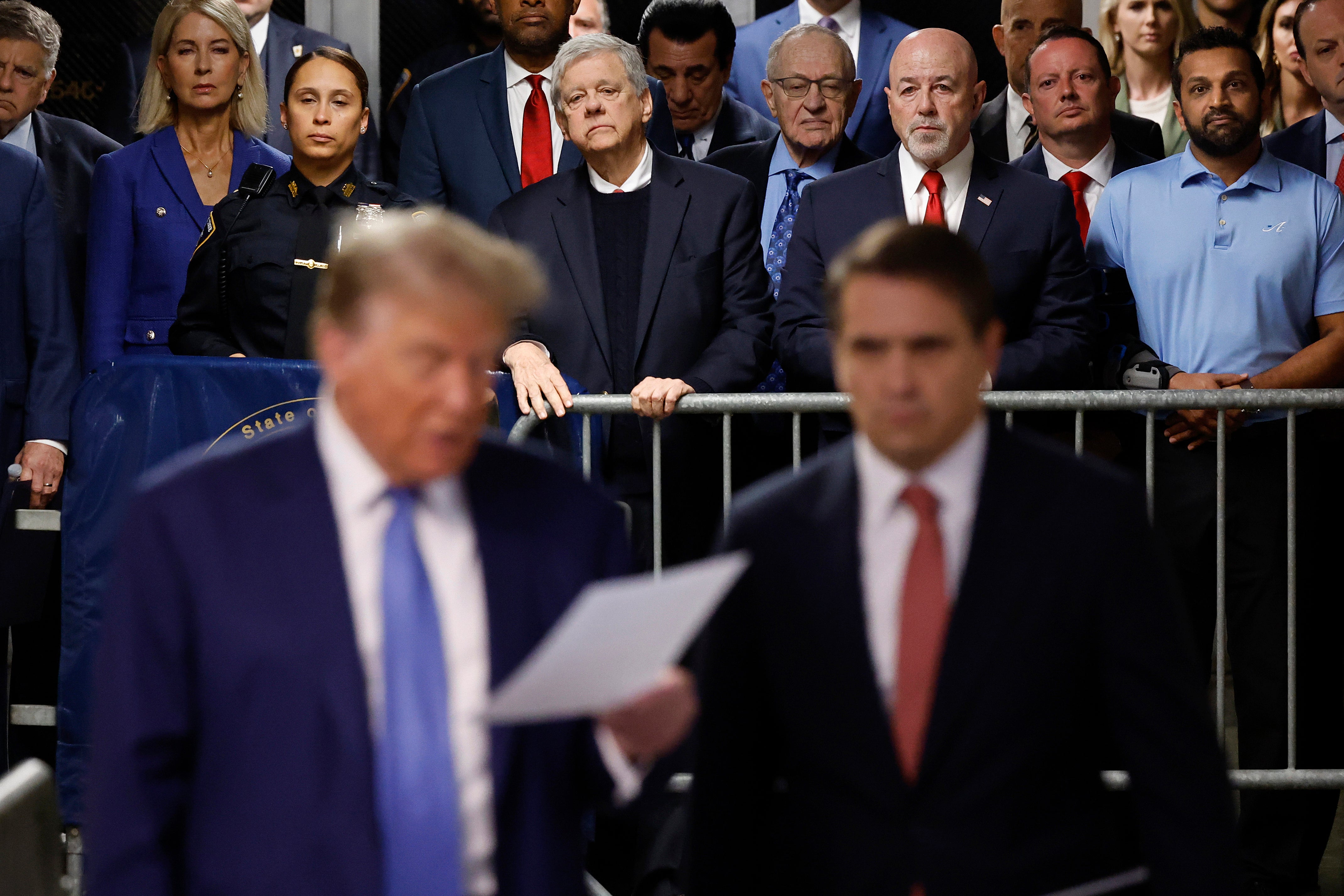Trump demands judge toss out guilty verdict in hush money case after Supreme Court’s ‘immunity’ ruling
Former president’s attorneys formally ask New York judge to dismiss indictment after landmark decision
Donald Trump’s attorneys have formally asked the judge overseeing his hush money trial to throw out the 34-count verdict against him and dismiss the case based on the Supreme Court’s landmark decision on presidential “immunity.”
A 50-page filing in Manhattan criminal court that was made public on Thursday — the day Trump was initially scheduled to be sentenced — argues that several pieces of evidence used against the former president fall under the scope of the Supreme Court’s decision, which shields presidents from criminal prosecution for “official” acts in office.
Those “impermissible official-acts evidence” include Trump’s conversations with a White House aide who testified at the trial, phone records from his time in office, and posts on Twitter, which was “recognized as a formal channel of White House communication in the Trump Administration,” according to Trump’s attorney Todd Blanche.
“No President of the United States has ever been treated as unfairly and unlawfully as District Attorney Bragg has acted towards President Trump in connection with the biased investigation, extraordinarily delayed charging decision, and baseless prosecution that give rise to this motion,” Blanche wrote.
“Rather than wait for the Supreme Court’s guidance, the prosecutors scoffed with hubris at President Trump’s immunity motion” and “insisted on rushing to trial” before the Supreme Court’s decision, which landed on July 1.
Blanche argues that Bragg’s office forced the court to “front-run the Supreme Court on a federal constitutional issue with grave implications for the operation of the federal government and the relationships between state and federal officials.”
“The record is clear: [the district attorney] was wrong, very wrong,” he added.

On May 30, a jury convicted Trump on all 34 felony counts of falsifying business records in connection with a scheme to silence adult film star Stormy Daniels, whose story about having sex with Trump threatened to derail his 2016 presidential campaign.
The initial notice from Trump’s attorneys in the New York case arrived within hours of the Supreme Court’s ruling, which partially shields Trump and any other presidents from criminal prosecution for actions considered “official” duties while in office, and provides a presumption of “immunity” for acts in the “outer perimeter” of those “official” duties.
Judge Merchan had dismissed Trump’s previous attempt to rule out evidence as “immune” before the Supreme Court issued its decision.

The challenge is a long shot. Judge Merchan will now have to decide whether Trump’s actions outlined in the case against him, and the evidnece used to prosecute him, can be considered “official” acts. The Supreme Court says presidents are not immune from prosecution for “unofficial” acts while in office.
But Trump’s legal strategy is designed around delay tactics. Here, he has successfully delayed a sentencing date until after the Republican National Convention, and within six weeks before Election Day.
Prosecutors are expected to respond to Trump’s motion by July 24, and Judge Merchan will answer on September 6.
He is scheduled to sentence Trump on September 18.
Bookmark popover
Removed from bookmarks